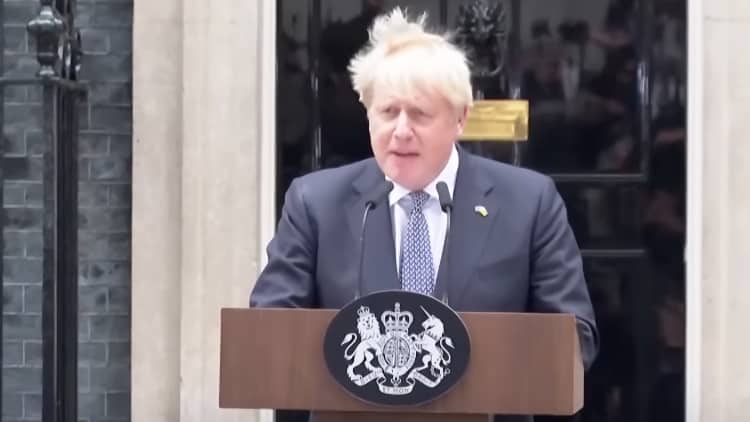Luis Ayllón
The resignation of the British Prime Minister, Boris Johnson, will mean a new setback in the negotiations between the European Commission and the United Kingdom to reach an agreement on the future of Gibraltar after Brexit, according to reliable sources consulted by The Diplomat.
Although, for the time being, a new meeting -the ninth of the negotiating round- between the EU and British delegations is still scheduled for the middle of this week in Brussels, it is not expected that, if it is held, it will lead to any concrete progress.
As has happened on other occasions, days before each negotiation, the Spanish and British met last week in Madrid to study possible advances of a technical nature. The UK delegation included the Gibraltarian chief minister, Fabian Picardo, and the deputy chief minister, Joseph García, in an effort to push forward some of the issues that are bogged down, but the meeting coincided with the explosion of the crisis in the British government and no progress is known to have been made.
The Gibraltarian authorities are confident that there will be no delays and, perhaps because of this, Picardo issued a statement saying that his government “remains fully committed to achieving a treaty for Gibraltar in line with the New Year’s Eve Agreement and, working closely with the UK, will spare no effort to achieve this”.
The hopes of the Gibraltarians now come up against the lack of leadership in London, as it seems that Johnson, in the time he still remains in Downing Street, will have among his priorities to make decisions on Gibraltar. Moreover, the negotiations could be affected if the Gibraltar issue, like that of Northern Ireland, is used by potential candidates to succeed Johnson for electioneering purposes, wrapping themselves in nationalist approaches.
The consequence of the political process that has just begun in the United Kingdom, which could last almost until the end of the year, is that Gibraltar will remain in a situation of uncertainty that does not please the majority of Gibraltarians and which, at the same time, is beginning to annoy the Spanish government.
Under the New Year’s Eve Agreement, reached by Madrid and London on 31 December, the Spanish government adopted a policy of tolerance regarding the application to Gibraltar of the same measures that apply to countries that are not part of the European Union or the Schengen Area, including the rest of the United Kingdom.
It was intended to be a transitional period of six months, but it has now turned into a year and a half, a time in which some of these measures have begun to be applied, the latest being the end of free Spanish health care for Gibraltarians as of 30 June.
However, the main measure, which affects the free movement of people, has still not been applied to Gibraltarian residents, a situation that some countries that are not part of the Schengen area consider discriminatory for their nationals, who are required to have a passport to enter Spain and the European Union.
The Spanish government is currently studying what to do about the application of controls at the border, whether to extend the current derogation, possibly for another six months, or to start treating Gibraltarians like any other non-EU national. If the latter is chosen, it is certain that there would be long queues to cross the border, as the Spanish security forces would have to spend much more time asking for documentation from those crossing the border and checking vehicles. This would bring back images of long queues, which is one of the situations most feared by the Gibraltarians.
Last February, the government of the Rock warned its citizens that they should be prepared for the possibility that London and Brussels would not reach an agreement on the future of the colony, and drew up a scenario of long queues at the border, where both Spaniards who go to work in Gibraltar and Gibraltarians who want to go to Spain, where many of them have their second homes, would have to present their passports.
In any case, there have been no major advances in the negotiations between the United Kingdom and the European Commission so far this year, although in May, the Foreign Affairs Minister, José Manuel Albares, said “there are concrete texts on the table” and expressed his confidence that a drafting with concrete solutions for the important points would be forthcoming soon.
According to sources familiar with the negotiations, there is agreement on 90 percent of the approximately 300 articles that make up the document to be approved, but there are still sensitive stumbling blocks regarding the exercise of Schengen controls at Gibraltar’s port and airport. Spain does not renounce the right of its security forces to exercise this control, although it accepts that during the first four years they will be assisted by Frontex agents, and the United Kingdom wants to specify very clearly where those who carry out these controls will be, so that this is not understood as a surrender of sovereignty.







